Page 21 • (2,944 results in 0.011 seconds)
-
Many students want to know how governments are organized, how rules are made and how government influences the amount and distribution of social rewards.
Why Political Science?Many students want to know how governments are organized, how rules are made and how government influences the amount and distribution of social rewards. As a citizen you may want to know how to wield influence and change rules or outcomes, either through government or in other political situations. You may wish to work in government or in the many organizations that are regulated by and try to influence government. Any of these purposes can be served by a greater
-
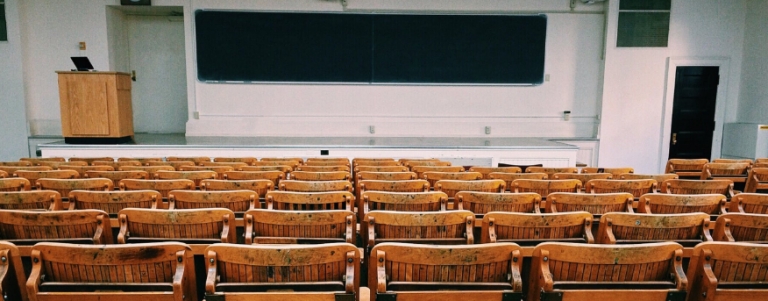
Please join us on May 8th in Xavier 201 for poster presentations of the following projects:
Political Science Capstone Presentations - Spring 2019Please join us on May 8th in Xavier 201 for poster presentations of the following projects:May 8, 4:00-5:00 pm - Xavier 201/First SessionCo-Authored PapersAziza Ahmed and Riley DolanAlex Alcantar and Angela DominguezHaedon Brunelle and Annika PedersonKennedy Gwin and Nadine NabassVanna TangonanNelago Nuunyango and Molly SullivanChris Park and Mark ValerioAziza Ahmed and Riley Dolan “A Solution: Mandatory Voting in the United States” Alex
-
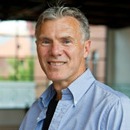
Professor of Computer Science | Department of Computer Science | blahakd@plu.edu | 253-535-8702
Kenneth Blaha Professor of Computer Science he/him/his Phone: 253-535-8702 Email: blahakd@plu.edu Status:Phased Retirement Website: https://cs.plu.edu/~blahakd/ Professional Education Ph.D., University of Oregon, 1989 M.S., Computer Science, University of Oregon, 1984 M.S., Mathematics, University of Oregon, 1981 B.A., University of Minnesota, Morris, 1978 Areas of Emphasis or Expertise Computational Complexity Algebraic Algorithms Computer Science Education
-
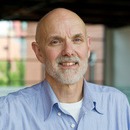
Professor Emeritus of Computer Science | Department of Computer Science | hausergj@plu.edu | 253-535-8731
George Hauser Professor Emeritus of Computer Science Phone: 253-535-8731 Email: hausergj@plu.edu Office Location:Morken Center for Learning & Technology Office Hours: Mon - Fri: By Appointment Professional Education Ph.D., University of Rochester, 1988 M.S., University of Oregon, 1980 B.S., Computer Science, Washington State University, 1972 B.S., Physics, Washington State University, 1971 Areas of Emphasis or Expertise Parallel Algorithms Computational Complexity Computer Communication
Office HoursMon - Fri: -Area of Emphasis/Expertise -
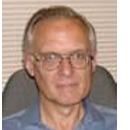
Professor Emeritus of Computer Science and Computer Engineering | Department of Computer Science | brinkje@plu.edu
James E. Brink Professor Emeritus of Computer Science and Computer Engineering Email: brinkje@plu.edu Website: https://community.plu.edu/~brinkje/ Professional Education Ph.D., Iowa State University, 1970 M.S., Iowa State University, 1967 A.B., Hope College, 1965
Contact Information -
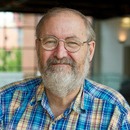
Professor Emeritus of Computer Science and Computer Engineering | Department of Computer Science | spillmrj@plu.edu
Richard Spillman Professor Emeritus of Computer Science and Computer Engineering Email: spillmrj@plu.edu Professional Education Ph.D., Utah State University, 1978 M.A., University of Utah, 1975 B.A., Western Washington University, 1971 Areas of Emphasis or Expertise Computer Hardware Artificial Intelligence Computer Security
Contact Information -
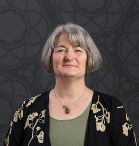
Professor of Earth Science and Environmental Studies | Earth Science | mckennra@plu.edu | 253-535-8726
Rose McKenney Professor of Earth Science and Environmental Studies she/her/hers Phone: 253-535-8726 Email: mckennra@plu.edu Office Location: Rieke Science Center - 143 Status:On Sabbatical Professional Education Ph.D., Geosciences, The Pennsylvania State University, 1997 M.S., Geosciences, The Pennsylvania State University, 1992 B.S., Geology, Oregon State University, 1985 Areas of Emphasis or Expertise Geomorphology Environmental Studies Science Education Curriculum Development Books Land Use
Area of Emphasis/Expertise -
Tami Charles is an award winning and New York Times bestselling author of children’s, middle grade, and young adult books.
, science education presenter Kirk Robbins guided participants through a learning experience to consider each individual’s role in improving the learning of science in the K-12 education system. Participants uncovered and shared their personal “science stories” and used those stories to define the K-12 system of science education both in and outside of school. Participants then used an equity and diversity lens to identify opportunities to change and disrupt the K-12 science education system in order to
-
My goal as a therapist is to help you find solace in your relationships and confidence in yourself. Together, we’ll focus on improving communication with yourself and others; highlighting your
from teenagers to adults. Together, we can tackle complex issues like trauma, anxiety, depression, and learning disabilities. I look forward to learning about your unique experiences and working together to find solutions that work for you. My approach to therapy is a collection of evidence-based theories, including internal family systems, narrative, and cognitive behavioral therapy. My priority is to create a welcoming environment for you to share your feelings. Therapy is an opportunity for you
-
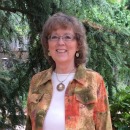
Professor of Psychology | Department of Psychology | hansvick@plu.edu | Academic Liaison on the board of Peace and Justice Studies, as well as teaching Peace Psychology. Faculty Director for joint PLU/Tacoma-Pierce County Chamber of Commerce Leadership program. Passion for teaching statistics/research methods, where I approach the classroom as a dynamic social environment and continually strive to create a positive, active learning environment for my students. Current research interests: (1) Cognitive complexity and openness to experience in relation to the liberal arts experience; (2) teaching and learning styles in relation to the challenges of teaching Millennials; and (3) changes in perceptions of cities over time. .
environment and continually strive to create a positive, active learning environment for my students. Current research interests: (1) Cognitive complexity and openness to experience in relation to the liberal arts experience; (2) teaching and learning styles in relation to the challenges of teaching Millennials; and (3) changes in perceptions of cities over time.
Contact InformationArea of Emphasis/Expertise
Do you have any feedback for us? If so, feel free to use our Feedback Form.


